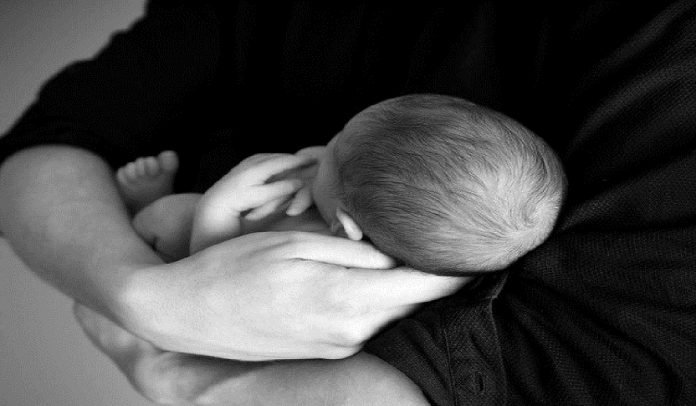What is baby colic? If you have a colicky infant. You do not seem to enlist help from others as you would if your child were not colicky.
I think there are several reasons for this, including embarrassment, fear, and concern. As a stable parent, it was hard to handle all of the relentless cryings. How could I inflict it on someone else?
How could I be sure they, who didn’t necessarily love this baby the way I do, wouldn’t succumb to frustrations themselves, with dire consequences?
What is Baby colic?
Colic is a good example of this. Interestingly, the reason colic is hard to treat has nothing to do with your ability to diagnose it.
As you will see, colic is actually not that difficult to diagnose. Instead, the reason colic is hard to treat has more to do with the difficulty in identifying its cause.
In most cases, in order for a doctor to formulate a sound and successful treatment plan, he or she must first identify the cause of the problem.
A problem is much harder to treat without this information. For example, think about a person who is running a very high fever.
Certainly, a high fever can be a problem and should be treated immediately so the person does not face dire medical consequences.
Diagnosing the high fever was probably not a difficult task. A thermometer or, even less scientifically, a mother’s hand on a child’s head could reveal a significant rise in body temperature.
However, identifying the cause of the high fever may provide doctors with more of a challenge. Many different things could cause a rise in body temperature, for example, an infection, a drug overdose, or a heat stroke.
The treatment approaches
The treatment approaches for all of these would clearly be very different. Therefore, knowing specifically what the root of the problem is, will allow the doctor to set up a sound treatment plan with hopes for greater success.
The most common reason that a treatment plan fails is because the cause has been wrongly determined or not determined at all. Colic is no different. Doctors will often diagnose colic but have little information as to how to treat it.
In order to successfully treat a problem, we must be knowledgeable about the specific causes. With this understanding, we can then begin to formulate our own plan and approach the problem of colic from a more scientific viewpoint.
Background Colic is diagnosed by the “Rule of Threes” if an infant cries at least three hours a day, three days per week, for three weeks in a row, then he or she is considered to be suffering from colic.
Much of the current literature states that there is no known cure for colic (with the recent exception of the newborn suffering from gastrointestinal problems). Colic is compared to a virus as experts everywhere attest that colic simply needs to run its course.
What Causes Colic in Babies?
Colic usually starts when the baby is two weeks old and ends when the baby is one hundred days old, which is approximately three and a half months of age.
Some researchers note that colic peaks at six weeks and then begin to dissipate. Interestingly, babies born prematurely usually develop colic two weeks after their original due date and not two
weeks after they are born. In addition, premature babies are no more likely to develop colic than a baby who is born at full term.
A Lower Right Stomach Pain – Pain in Right Side of Stomach

The sound of the cry of a colicky baby is much more intense than that of other infants. The colicky cry is often described as a piercing, relentless scream.
It can stop as abruptly as it starts and is often heard during or immediately after feeding, especially in cases when it is due to a gastrointestinal problem. The colicky baby sounds as though he is in tremendous pain.
His face may be twisted and strained, causing onlookers to be highly concerned. It is not uncommon for concerned parents to show up at emergency rooms in the middle of the night with their colicky infants.
If the colic symptoms are caused by gastrointestinal
If the colic symptoms are caused by gastrointestinal problems and lower right stomach pain, signs of relief may not be apparent until after the infant passes gas or has a bowel movement.
Although there is no known cure for colic, it can be improved with soothing techniques such as offering the baby something to suck on, singing, holding, rocking, white noise, and massage.
Colic seems to be much worse at night and during the evening hours, which are often described as the witching hours. Many parents complain that this is their infant’s fussiest time of day.
Prevalence and Patterns In the United States, there are approximately four million babies born each year. Each year an estimated one million newborns develop colicky symptoms. That is one out of every four babies! This number may surprise you. I know it left me with two burning questions.
FIRST, HOW COULD SO MANY FAMILIES BE FACED WITH THIS HARDSHIP AND YET SO LITTLE INFORMATION ON THE SUBJECT BE OFFERED IN SUPPORT OF THOSE WHO ENDURE IT?
SECOND, WHY IS A DETAILED DISCUSSION AVOIDED BY PARENTS, DOCTORS, CHILD CARE PROVIDERS, FAMILY, AND FRIENDS?
There is no pattern cited to predict the development of colic. The baby’s gender, birth order, or premature status does not predict the onset of colic.
In addition, the parent’s socioeconomic status, age, education level, or academic achievement has not been linked to colic in any way. Interestingly, not every culture reports colicky infants. In many cultures around the world, babies never get colic.
Many parents proclaim that they believe colic is hereditary. These parents state that they were reportedly colicky infants themselves and that in turn they were “being paid back” with their own colicky infant to raise.
There clearly is some validity to this belief. I do not believe it is coincidental that many parents who were colicky themselves have colicky infants.
Causes of Colic
There are many theories regarding the various causes of colic. Theories from ancient times include trauma from pregnancy,
the baby catching a draft, the mother’s milk being too thin or too rich, and various spiritual and religious beliefs, including possession by the devil and punishment for Adam and Eve’s original sin.
There are four frequently cited theories on colic in the current literature. The first and most common is the theory of stomach problems. Gas, constipation, and overactive intestines are cited
most frequently in the literature as the causes of colic. This is understandable considering the fact that all three of these factors can unquestionably lead to a feeling of discomfort, causing a baby to cry.
In fact, the word colic is derived from a Greek word, kolikos, which means “large intestine or colon.” In the past, parents believed that stomach pain and/or discomfort caused their babies to cry. This theory has definitely stuck through the years.
Two different types of stomach problems
Two different types of stomach problems are cited in the literature. One is much more severe than the other. The less severe problem is characterized by great discomfort due to problems with the baby’s digestive system.
An infant’s digestive system is not fully mature until he or she is one hundred days old. Therefore, gas, constipation, and stomach cramps may cause such great distress that the infant cries out in pain.
The more severe problem is characterized by severe abdominal pain due to intestinal illness, such as stomach acid reflux or food intolerance/allergy.
The good news is that newborns who have this medical problem can be medically treated. In other words, under this specific circumstance, there is a cure.
How To Help a Colicky Baby
Infants who are suffering from gastroesophageal reflux disease (also known as infant GERD) can be treated with certain medications. These medications must be prescribed by a medical doctor.
CONSULT YOUR PEDIATRICIAN IMMEDIATELY IF YOU BELIEVE YOUR NEWBORN MAY BE SUFFERING FROM THIS PROBLEM.
Infants who are suffering from food intolerance/allergy may also find a cure. However, some detective work may be necessary.
When a newborn has a food intolerance/allergy, the caregiver must first find the cause of the problem in order to find a cure.
Once the food or ingredient causing the problem is found, then it can be avoided to provide the infant with some relief.

The second highly cited theory involves brain development. This theory states that when a baby’s nervous system is not fully matured, it can cause the baby to feel overwhelmed, and as a result, the baby will cry. I was thoroughly intrigued by this theory.
It made a lot of sense to me. Babies have been in the womb for nine months with minimal stimulation.
Once born, they are faced with new sounds, smells, sights, and touches. I could only imagine how overstimulating this could be for a newborn.
I was hesitant to accept this theory as a whole because only some infants are colicky. If this theory were true,
wouldn’t all infants be colicky? What was the deciding factor?
Were the brains of colicky infants less mature than other infant brains or was something missing in this theory?
I decided that something must be missing. I based this decision on one important fact. The most immature brain is found in a baby born prematurely. However, premature babies are no more likely than full-term babies to develop colic.
Maternal depression, anxiety, and Baby colic
The third theory focuses on maternal anxiety. It states that mothers who are anxious elicit the same anxious response in their babies.
In other words, the anxious mother transfers her anxieties onto her infant, which in turn causes the infant to cry.
To be honest, I am not a particular fan of this theory, and many parents agree. After all, this theory blames the mother for her baby’s colic. Many parents find this theory upsetting to read about.
It is the one theory that feeds right into the mother of a colicky infant’s already existing insecurities. Initially, most mothers do not want to accept this theory because accepting it means they are fully to blame.
From working for so many years in the field of psychology, I have become all too familiar with blame being placed on parents or on a victim. In fact, one of the easiest theories to develop is the theory of blame.
However, it was the first time that I was actually in that hot seat. It did not feel good to be blamed for my child’s problems.
As a parent with a colicky infant, I felt victimized by my circumstances. In a sense, parents are victims of this traumatic experience. Colic can be extremely traumatizing for the entire family unit, not just the infant.
In turn, the last thing a new mother needs or wants to think about is being the cause of this terrible situation. However, this theory suggests just that: a mother who is anxious may be causing colic.
What is the Causes of baby Colic?
In an attempt to investigate this possibility, I made a conscious effort to place my insecurities aside and to look at this theory logically to decide whether or not it had some credibility.
I was a new mother who did not feel fully equipped to handle all of the challenges that came along with motherhood.
Caring for a newborn can be unexpectedly stressful for first-time mothers. It is a life-altering circumstance. While researching the validity of this theory, I reminded myself of the reasons for a mother’s stress.
The instability of hormones, sleep deprivation, and bodily changes combined frequently with a loss of financial income and professional gratification, plus isolation from friends, coworkers, and family members can all cause tremendously.
The most common reason that a treatment plan fails
Research does indicate that stress and anxiety can affect both biological and psychological processes in the new mother.
For example, biologically, stress can lessen the mother’s milk supply or interfere with proper letdown. If this occurs, the infant can become hungry and cry.
Psychologically, stress can cause the mother to become increasingly distracted, perhaps avoiding attending to and handling her infant.
One doctor who specializes in soothing techniques for colicky infants notes that anxious mothers tend to jump from one soothing technique to another, which can potentially upset a baby more and have the opposite of the desired effect.
With all of the research on anxious mothers, it is hard to deny that this does not play some role in the potential for a colicky infant. However, I strongly believe that this is not the sole cause of colic.
I have seen plenty of mothers, both personally and professionally, who have extreme anxiety both during and after pregnancy but have calm, peaceful infants who cry minimally in their first months of life. Also, let’s not forget, there is no link between colic and birth order.
Colic can occur with a firstborn
Colic can occur with a firstborn as likely as it can occur with a sixth born. Therefore, wouldn’t we expect more experienced parents to be more confident and less anxious? But they could still have a colicky infant.
The last current theory that is cited in colic literature focuses on the baby’s temperament. Sensitive babies will inevitably respond more intensely to things that cause them distress and, as a result, get upset and cry more.
Most researchers believe, and many parents agree, that a baby is born with a certain temperament.
I hear mothers talk all the time about knowing exactly what type of child they will have according to the activity in the womb.
Many people believe it starts that early, and most concur that it is present at birth. In addition, it is argued that one’s temperament is a stable trait, which means it usually will not change throughout one’s lifetime.
Theory of Stomach Problems Gas, constipation, and overactive intestines are cited most frequently in the literature as the cause of colic.
Two types: problems with the baby’s immature digestive system or intestinal illness, such as stomach acid reflux or food intolerance/allergy.
Brain Development This theory states that when a baby’s nervous system is not fully matured, it can cause the baby to feel overwhelmed, and as a result, the baby cries.
Maternal Anxiety Mothers who are anxious elicit the same anxious response in their babies.
Baby’s Temperament Sensitive babies will inevitably respond more intensely to things that cause them distress, and as a result, get upset and cry more.
Emotional Repercussions for the Parent
- – Feelings of hopelessness and helplessness, and feeling overwhelmed.
- – Thoughts of being a “bad parent.”
- – Fear of judgment and/or criticism by others.
- – Isolation due to all of the above.
The First Sign of Baby Colic
Assessing a problem is the very first step in finding a solution. The sooner you can identify that there is a problem, the sooner you can attempt to solve it.
In the case of colic specifically, the earlier you are able to recognize that your baby is exhibiting these symptoms, the sooner you can gain an understanding of the problem and search for a cause.
you will be better equipped to utilize strategies that will provide both you and your baby with some relief.
Although many babies do not manifest signs of colic until two weeks of age, in my son’s case, the onset of colicky symptoms was very shortly after birth.
Another common concern experienced by parents is the unknown cause of the intense cries. Parents often worry that their newborn is in excruciating pain.
They instinctively believe that something is very wrong with their infant and that he should be examined by a doctor.
It is common for babies to cry and it is even more common for them to cry themselves to sleep out of utter exhaustion when left to their own devices. However, this is not true for colicky infants.
They tend to wind themselves up instead of wind themselves down. You may have heard parents talk about letting their children cry themselves to sleep at night.

What are some symptoms of postpartum depression?
Common Concerns Parents who are encountering their newborn’s relentless cries for the first time face several common fears. One of the most common concerns stated by parents is the fear of their newborn being hungry and not getting enough food.
This is particularly scary for parents when the mother’s milk has not yet come in. Infants usually lose weight in the first few days of their lives, but gain it back once the mother’s milk comes in and they are able to eat larger meals.
The Ferber technique is based on the premise that you gradually train your baby to fall asleep on his own. If he cries, his parents wait a certain amount of time before going in and checking on him.
The check-ins do not entail picking the baby up or feeding him, but rather simply allowing the baby to hear the soothing sound of your voice, and only for a short period of time.
The Doctor estimates that after approximately one week, the infant learns to sleep on his own because crying only provides him with a brief check-in from his parents.
How to Help In an attempt to support someone who is struggling with a colicky infant
The first and most important thing to remember is that she is on an emotional roller-coaster ride. Encourage the person to verbalize her feelings, but do not pressure her to talk before she is ready.
Utilize active listening skills when she does begin to share her struggles and distressing emotions.
Do not judge or criticize her feelings. or tell her not to feel that way. Try to not minimize the way she is feeling or tell her that she is only trying to get attention.

What are some symptoms of postpartum depression?
True postpartum depression is more severe than postpartum blues. Symptoms include feeling overwhelmed and/or hopeless, sad and/or irritable; exhibiting poor concentration and indecisiveness; and having sleeping and/or eating problems.
A loss of interest or pleasure in activities that the woman used to find interesting or pleasurable, decreased libido, and a lowered frustration tolerance may also be apparent.
In addition, these women often feel a lack of connectedness toward their newborns.
Risk factors for the development of this disorder include having had a previous postpartum depression (50 to 80 percent more likely), depression or anxiety during pregnancy, a family history of depression or anxiety, social isolation, and an inadequate support system.
Premenstrual syndrome (PMS) or premenstrual dysphoric disorder (PMDD) can increase a woman’s risk of developing postpartum depression. Also, thyroid dysfunction can mimic signs of postpartum depression and thus should be ruled out by a medical doctor.
The most severe level of postpartum depression is postpartum psychosis. affecting approximately 1 in 1,000 women.
This disorder has a 5 percent suicide rate and a 4 percent infanticide rate. It usually appears within the first postpartum week.
Symptoms of postpartum psychosis include visual or auditory hallucinations (seeing or hearing things that are not really there), delusional thinking (strongly held irrational or illogical beliefs such as denial of baby’s birth or need to kill their baby),
delirium (disturbance of consciousness or a change in cognition) and/or mania (abnormally and persistently elevated, expansive, or irritable mood).
Risk factors for the development of this disorder are a previous postpartum psychotic or bipolar episode and a personal or family history of psychosis, bipolar disorder, or schizophrenia.
Postpartum depression is treatable. Women need to reach out and utilize the support systems around them so that they are not isolated. Isolation can worsen depressive symptoms. Depression can be an incredibly debilitating disorder.
Symptoms :
- – Infant cries for more than three consecutive hours per day.
- – Child cries are loud, intense, and relentless.
- – Baby does not easily cry himself to sleep. Read Baby Sleep Regression
- – Frequently disinterested in eating during crying bouts. Thus, the baby is not crying because he is hungry.
- – Your infant is inconsolable.
Common Concerns and What to Know
- – There may be some breaks in crying due to the utilization of distraction or soothing techniques.
- – It is not uncommon for parents to worry that their baby may hurt himself due to the intensity of his colicky cries.
- – Due to the continuous, inconsolable nature of the child’s dis- tress, parents often experience their own distress.
Emerging Emotions
- – Feelings of confusion, shock, fear, anxiety, anger, helplessness, and hopelessness are common among parents during the assessment phase and thereafter.
- – During the initial assessment phase, both emotional and physical exhaustion is common among parents.
- – Parent adjustment to colicky symptoms occurs later.
- – Support of the parent is particularly important during this phase.





1 thought on “What Is Baby Colic? Causes, Symptoms, And Treatment”
Comments are closed.